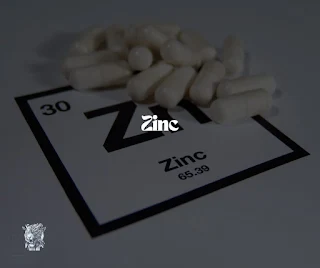Table of Contents
What is Zinc?
Zinc is a naturally occurring mineral that plays a crucial role in growth, as well as the development and maintenance of body tissues. It is utilized to address and prevent zinc deficiency, contributing to the proper functioning of the immune system.
Zinc Side Effects
Seek immediate medical attention if you experience signs of an allergic reaction, such as hives, difficulty breathing, or swelling of the face, lips, tongue, or throat. Common side effects of Zinc may include nausea or an upset stomach. This list is not exhaustive, and other side effects may occur. Consult your doctor for advice on side effects, and report them to the FDA at 1-800-FDA-1088.
Warnings
Adhere to all instructions on the label and packaging, using Zinc exactly as directed. Prior to using Zinc, consult a doctor or pharmacist if you have existing health issues, use other medications, or are pregnant or breastfeeding.
Related/Similar Drugs
Other related or similar drugs include ferrous sulfate, ergocalciferol, folic acid, acetylcysteine, ascorbic acid, multivitamins, and thiamine.
How should I take Zinc?
Follow the prescribed dosage provided on the label or as directed by your doctor. Avoid using larger or smaller amounts or extending the duration beyond recommendations. The daily recommended dose of zinc sulfate varies with age; hence, follow your healthcare provider’s guidance. You can also refer to the Office of Dietary Supplements of the NIH or the USDA Nutrient Database for recommended daily allowances.
Take Zinc with a full glass of water and, if it causes stomach upset, consume it with food. Store it at room temperature, protecting it from moisture and heat.
What happens if I miss a dose?
If you miss a dose, skip it if your next scheduled dose is imminent. Do not compensate with extra medicine.
What happens if I overdose?
In case of overdose symptoms such as nausea, severe vomiting, dehydration, and restlessness,
What should I avoid while taking Zinc?
Avoid taking Zinc with foods high in calcium or phosphorus, as they may impede its absorption. Such foods include milk, cheese, yogurt, ice cream, beans, peas, lentils, nuts, peanut butter, beer, cola soft drinks, and hot cocoa.
What other drugs will affect Zinc?
Inform your doctor about all medications, including prescriptions, over-the-counter medicines, vitamins, and herbal products, as they may interact with Zinc.

